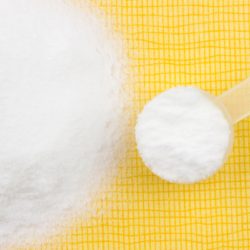All deficiencies in proteins, essential fatty acids, metalloenzymes, vitamin factors and antioxidant elements lead to a dysfunction of the immunity.
The immune system, like any other system in the body, depends on adequate food intake and is very sensitive to nutritional deficits and imbalances. However, unlike other systems, the nutritional requirements of the immune system vary, very rapidly, depending on cell replication and synthesis, as well as other energy-demanding functions.
Dietary deficiencies of specific proteins and micronutrients have long been associated with immune dysfunction. Adequate intake of iron, zinc and vitamins A, E, B6 and B12 is particularly important for maintaining immune function.
How does immunity work?
The immune system helps maintain the integrity of the host organism by eliminating foreign constituents (viruses, bacteria, parasites and other microorganisms, grafts, allergens) and modified “self” constituents. It performs this function in close relation with the other physiological systems, in particular, the nervous and endocrine systems, with which it communicates through various mediators (neurotransmitters, hormones, cytokines) and specific receptors common to these systems.
The immune system also produces mediators, called cytokines, which are secreted by cells present in damaged or infected tissue and trigger an inflammatory response. They can also act, from a distance, in other organs, such as the liver, to stimulate the production of proteins for the acute phase of inflammation and the central nervous system, to trigger, in particular, the increase in temperature. bodily (fever).
Impairment of cell-mediated immunity, phagocytic function, complement system, cytokines, antibody production and secretion are globally associated with protein-energy malnutrition.
Deficiency of micronutrients and vitamins, such as zinc, selenium, iron, copper, magnesium, manganese, Vit. A, C, E, B6 and folic acid could lead to impaired immune responses.
Immunity and Nutrition:
To function properly, the immune system depends, closely, on the quality and quantity of nutrients consumed (carbohydrates, fats and proteins, water, micronutrients and minerals).
Nutrient deficiency or insufficiency, however, must be corrected to properly maintain the function of the immune system.
-
The role of macronutrients:
Carbohydrates are the main source of energy for the immune system. Glucose is essential for the production of lactate to produce the maximum amount of ATP (energy), necessary for the proliferation of different immune cells. Carbohydrate needs must therefore be covered during different infections, such as, for example, Covid-19.
The level of lipids and the type of fatty acids present in the diet can indeed affect lymphocyte functions. The fatty acid composition influences the function of lymphocytes and other immune cells.
Adequate protein intake is also necessary to maintain proper functioning of the immune system. Indeed, any protein deficiency is a major cause of cellular immunity deficit and leads to a predisposition to infectious diseases.
Glutamine, an important amino acid for certain cells of the immune system, is also the precursor of a powerful antioxidant: glutamate and an important modulator of the function of lymphocytes and macrophages. In case of infection, the rate of glutamine consumption is similar or higher than that of glucose.
During infections, glutamine supplementation is important because it stimulates phagocytosis by macrophages, helps maintain the circulating T cell population, and normalizes lymphocyte function.
-
The role of micronutrients:
Various micronutrients are essential for the proper functioning of the immune system, in particular, vitamins A, C, D, E, B1, B2, B6, folic acid, zinc, selenium, magnesium and copper. Micronutrient deficiencies are a recognized global public health problem, poor nutritional status generally predisposes to different infections. However, micronutrient supplementation can increase resistance to infection.
Also called ascorbic acid, vitamin C is a water-soluble vitamin known for its powerful antioxidant power. It strengthens the action of the immune system and protects against infections. Vit C may also have an antihistamine effect, relieving symptoms associated with flu-like conditions, such as sneezing, runny nose and sinusitis. This vitamin has also shown its effectiveness in pneumonia and infections of the lower respiratory tract.
It is a fat soluble vitamin considered to be a hormone. It is synthesized in the human body, from a derivative of cholesterol or ergosterol, under the action of ultraviolet type B (UVB) radiation from the sun on the skin to give cholecalciferol (vitamin D3) .
Besides its well-established role in the regulation of phosphocalcic homeostasis, Vit D has other physiological functions, such as in particular the maintenance of the balance between a pro and anti-inflammatory state.
This vitamin is a major fat-soluble antioxidant which also helps to limit the runaway immune response and is believed to have immunomodulatory effects.
This vitamin brings together more than 600 molecules, the most important and best known of the carotenoids is beta-carotene, the latter has long been studied for its provitamin A activity. However, not all carotenoids can be converted into vitamin A. Their function in the organism is their own and is independent of this conversion.
Vit A supplementation notably reduces morbidity and mortality in various infectious diseases, such as measles, measles-related pneumonia, human immunodeficiency virus (HIV) infection and malaria. Vit A supplementation also plays a role in the prevention of complications related to various infectious diseases.
-
-
B vitamins:
-
These are water-soluble vitamins that play a role of coenzymes, essentially.
- Vitamin B1 or thiamine: It is involved in the immune response and adaptation to oxidative stress. It also has anti-inflammatory properties.
- Vitamin B6: Contained in brewer’s yeast, it is an important coenzyme in the various pathways of protein metabolism. It also plays an important role in immune function.
- Vitamin B9 or folic acid: Folic acid is not only important during pregnancy, but it plays a key role in immune function. A deficiency in folic acid induces a decrease in the antibody response to several antigens.
It is a trace element essential for cell division and for the functioning of immunity. Zinc deficiency can induce, among other things, an alteration of the immune response, but also an increase in oxidative stress and inflammation. Zinc is also known to limit the replication of viruses, in particular that of influenza and RNA coronaviruses. Zinc supplements basically help the immune system fight against viral infections, especially by inhibiting the replication of their genetic material.
It is a trace element known for its antioxidant power. This enzyme would play a key role during the cell cycle. In addition, a Selenium deficiency has an impact not only on immune function, but also on the pathogenicity of viruses, following the drop in antioxidant defenses. Selenium deficiency, however, induces an increase in the virulence of certain viral infections and an impairment of both humoral and cell-mediated immunity.
It performs several biological functions in the body. Different studies have demonstrated the key role of magnesium in the immune response.
It is a trace element essential for life, it is present in many enzymes and proteins. It also plays an important role in the development and maintenance of the function of the immune system. Copper deficiency leads to increased susceptibility to infections.
Sources :
- Alwarawrah Y., Kiernan K., MacIver NJ. Changes in Nutritional Status Impact Immune Cell Metabolism and Function. Front Immunol
- Schett G., Elewaut D., McInnes I., Dayer J., Neurath M. How cytokine networks fuel inflammation: Toward a cytokine-based disease taxonomy. Nat Med
- Gleeson M., Nieman DC., Pedersen BK. Exercise, nutrition and immune function. J Sports Sci
- Mehta NM., Duggan CP. Nutritional deficiencies during critical illness. Pediatr Clin North Am
- Hemilä H. Vitamin C and SARS coronavirus. J Antimicrob Chemother
- Calder PC., Yaqoob P., Thies F. Fatty acids and lymphocyte functions. Br J Nutr







